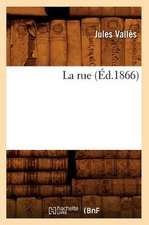The Child: New York Review Books Classics
Autor Jules Valles Douglas Parmeeen Limba Engleză Paperback – 31 dec 2004
Din seria New York Review Books Classics
-
 Preț: 88.86 lei
Preț: 88.86 lei -
 Preț: 99.24 lei
Preț: 99.24 lei - 16%
 Preț: 79.25 lei
Preț: 79.25 lei -
 Preț: 77.73 lei
Preț: 77.73 lei -
 Preț: 124.55 lei
Preț: 124.55 lei -
 Preț: 98.73 lei
Preț: 98.73 lei -
 Preț: 83.30 lei
Preț: 83.30 lei -
 Preț: 113.45 lei
Preț: 113.45 lei -
 Preț: 102.47 lei
Preț: 102.47 lei -
 Preț: 81.20 lei
Preț: 81.20 lei -
 Preț: 174.64 lei
Preț: 174.64 lei -
 Preț: 110.73 lei
Preț: 110.73 lei -
 Preț: 119.57 lei
Preț: 119.57 lei -
 Preț: 94.01 lei
Preț: 94.01 lei -
 Preț: 85.29 lei
Preț: 85.29 lei -
 Preț: 101.24 lei
Preț: 101.24 lei -
 Preț: 182.08 lei
Preț: 182.08 lei -
 Preț: 142.67 lei
Preț: 142.67 lei -
 Preț: 90.72 lei
Preț: 90.72 lei -
 Preț: 103.29 lei
Preț: 103.29 lei -
 Preț: 113.30 lei
Preț: 113.30 lei -
 Preț: 100.59 lei
Preț: 100.59 lei -
 Preț: 126.41 lei
Preț: 126.41 lei -
 Preț: 107.40 lei
Preț: 107.40 lei -
 Preț: 174.03 lei
Preț: 174.03 lei -
 Preț: 107.44 lei
Preț: 107.44 lei -
 Preț: 89.27 lei
Preț: 89.27 lei -
 Preț: 85.34 lei
Preț: 85.34 lei -
 Preț: 90.09 lei
Preț: 90.09 lei -
 Preț: 119.36 lei
Preț: 119.36 lei -
 Preț: 99.60 lei
Preț: 99.60 lei -
 Preț: 102.25 lei
Preț: 102.25 lei -
 Preț: 127.42 lei
Preț: 127.42 lei -
 Preț: 96.27 lei
Preț: 96.27 lei -
 Preț: 85.97 lei
Preț: 85.97 lei -
 Preț: 136.91 lei
Preț: 136.91 lei -
 Preț: 161.86 lei
Preț: 161.86 lei -
 Preț: 105.17 lei
Preț: 105.17 lei -
 Preț: 88.86 lei
Preț: 88.86 lei -
 Preț: 94.83 lei
Preț: 94.83 lei -
 Preț: 118.21 lei
Preț: 118.21 lei -
 Preț: 87.20 lei
Preț: 87.20 lei -
 Preț: 95.45 lei
Preț: 95.45 lei -
 Preț: 97.50 lei
Preț: 97.50 lei -
 Preț: 111.96 lei
Preț: 111.96 lei -
 Preț: 133.18 lei
Preț: 133.18 lei -
 Preț: 100.18 lei
Preț: 100.18 lei -
 Preț: 75.23 lei
Preț: 75.23 lei -
 Preț: 91.13 lei
Preț: 91.13 lei -
 Preț: 94.86 lei
Preț: 94.86 lei
Preț: 95.95 lei
Nou
Puncte Express: 144
Preț estimativ în valută:
18.37€ • 19.96$ • 15.44£
18.37€ • 19.96$ • 15.44£
Carte disponibilă
Livrare economică 31 martie-14 aprilie
Livrare express 14-20 martie pentru 26.05 lei
Preluare comenzi: 021 569.72.76
Specificații
ISBN-13: 9781590171172
ISBN-10: 1590171179
Pagini: 320
Dimensiuni: 130 x 204 x 20 mm
Greutate: 0.39 kg
Ediția:New.
Editura: NEW YORK REVIEW OF BOOKS
Seria New York Review Books Classics
Locul publicării:United States
ISBN-10: 1590171179
Pagini: 320
Dimensiuni: 130 x 204 x 20 mm
Greutate: 0.39 kg
Ediția:New.
Editura: NEW YORK REVIEW OF BOOKS
Seria New York Review Books Classics
Locul publicării:United States
Notă biografică
Jules Vallès (1832ߝ1885), French writer and revolutionary, is most famous for his trilogy of autobiographical novels: L’Enfant (The Child), Le Bachelier (The Graduate), and L’Insurgé (The Insurgent). Through Vallès’s alter ego, Jacques Vingtras, the books describe the writer’s difficult childhood as the abused son of a schoolteacher, his rejection of his classical education and growing admiration for the peasant class, and finally his bohemian life in Paris as a militant journalist and pamphleteer. Vallès grew up in the provinces and came to Paris to study as a young man. Forced by his family to return home, he soon rebelled against his socially ambitious father and returned to the capital. There Vallès associated with other young radicals and published articles in various left-wing newspapers under a series of pseudonyms, which nevertheless failed to protect him from government persecution. Vallès led protests against the repressive policies of Napoleon III and played a significant role in the Paris Commune of 1871; his newspaper, Le Cri du Peuple (The Cry of the People), became the mouthpiece of the revolt. After the defeat of the Commune, Vallès was exiled for nine years, which he spent mostly in London, writing articles and composing his autobiographical trilogy. Upon his return to Paris, he resurrected Le Cri and spent the last five years of his life working furiously on articles, pamphlets, and the last book of his trilogy.
Douglas Parmée (1914ߝ2008) was a lecturer in modern languages at Cambridge and a Lifetime Fellow of Queens’ College. He translated many works of classic and contemporary literature from French, Italian, and German, receiving the Scott Moncrieff Prize for French translation in 1976. NYRB Classics publishes his translations of The Child by Jules Vallès, Afloat by Guy de Maupassant, and Nature Stories by Jules Renard.
Douglas Parmée (1914ߝ2008) was a lecturer in modern languages at Cambridge and a Lifetime Fellow of Queens’ College. He translated many works of classic and contemporary literature from French, Italian, and German, receiving the Scott Moncrieff Prize for French translation in 1976. NYRB Classics publishes his translations of The Child by Jules Vallès, Afloat by Guy de Maupassant, and Nature Stories by Jules Renard.
Recenzii
"[Vallès] is a more reliable witness of his society, or at least certain sectors of it, than many more renowned but less involved writers of his age."
— Walter D. Redfern, Times Literary Supplement
"Essentially autobiographical, Vallès’s 19th-century novel charts the author’s experience of growing up in an emotionally distant family obsessed with social status."
— The Guardian
"The author of The Child is one of the masters of French prose. There’s no denying that. But his work shouldn’t be considered an exercise in virtuosity. It has an exact and terrible significance. His work stands as an act of liberation. Vallès is the man who liberates us from the family, who liberates us from our father and our mother, who says to us: 'judge them and, if there is cause to, condemn them'.”
— Maurice Barrès
"A true book, a book composed of the most exact, the most poignant human documents. It’s been ten years since a work has moved me to such a degree."
— Émile Zola
— Walter D. Redfern, Times Literary Supplement
"Essentially autobiographical, Vallès’s 19th-century novel charts the author’s experience of growing up in an emotionally distant family obsessed with social status."
— The Guardian
"The author of The Child is one of the masters of French prose. There’s no denying that. But his work shouldn’t be considered an exercise in virtuosity. It has an exact and terrible significance. His work stands as an act of liberation. Vallès is the man who liberates us from the family, who liberates us from our father and our mother, who says to us: 'judge them and, if there is cause to, condemn them'.”
— Maurice Barrès
"A true book, a book composed of the most exact, the most poignant human documents. It’s been ten years since a work has moved me to such a degree."
— Émile Zola
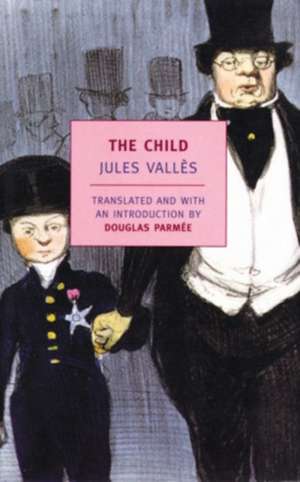


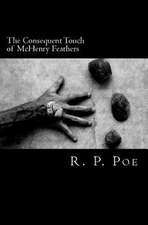



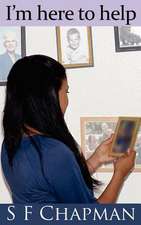

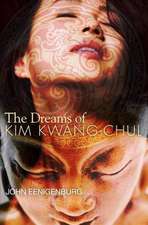

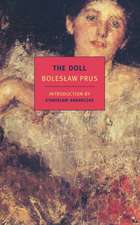

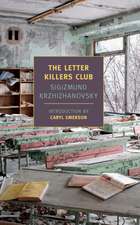


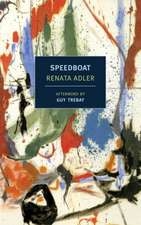
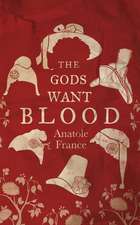
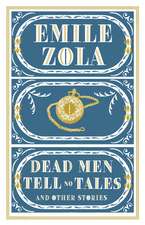
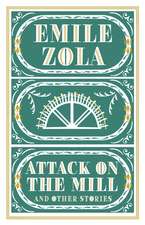

![Les Refractaires: [Nouvelles] (Nouvelle Edition) (Ed.1881)](https://i4.books-express.ro/bt/9782012579941/les-refractaires.jpg)
